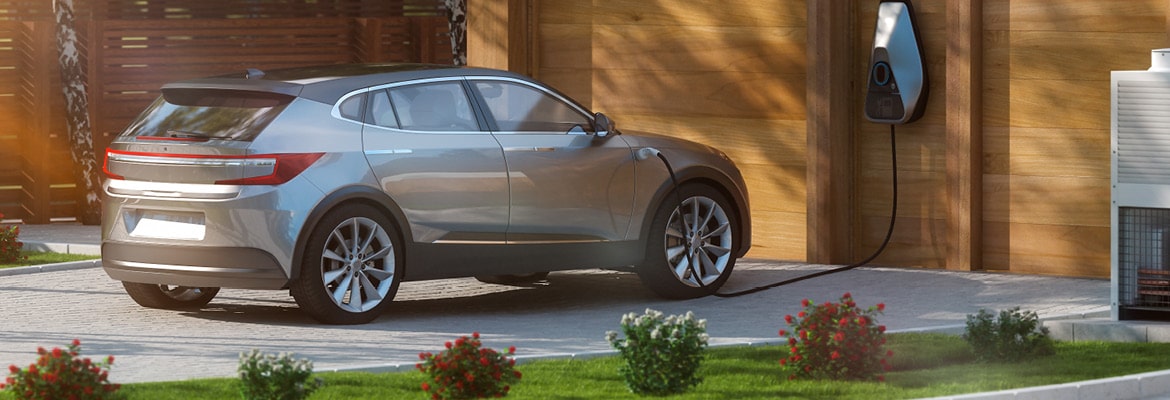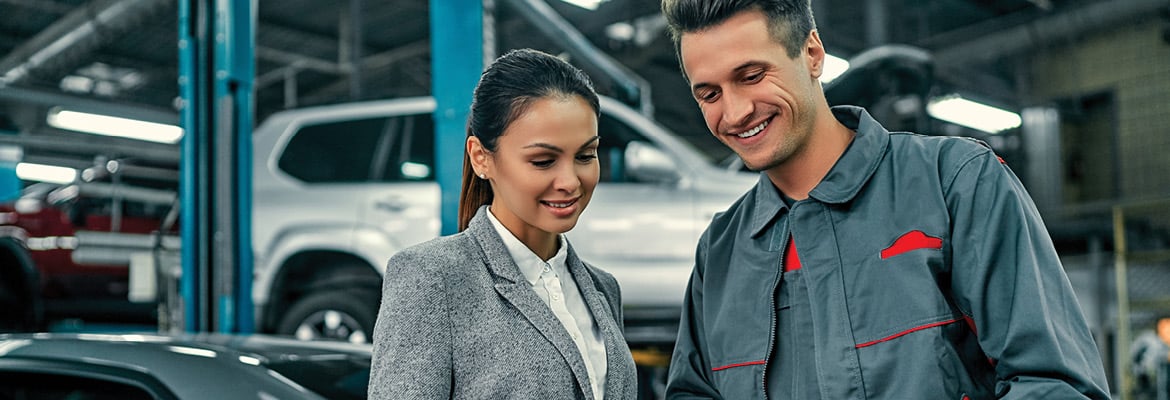Author(s)
Electric vehicles (EVs) have been available for purchase through dealerships for many years, but a recent trend is emerging where automakers are selling EVs directly to consumers. This direct-to-consumer sales model bypasses the traditional dealer system and some believe it could be the future of EV sales.
Direct-to-consumer is not a new business model
The direct-to-consumer business model is nothing new in the automotive world, but a conversation brought it to light due to a recent announcement from Ford CEO, Jim Farley.
Ford’s business model
After complaints of dealer price gouging on the Ford Lightning and many warnings from the manufacturer to stop, Ford has imposed penalties on dealerships marking up their prices beyond reasonable numbers. The ramifications go as far as the complete removal of the vehicle from their inventory, which would no longer allow that auto dealer to sell it.
Furthermore, Farley announced the company is considering a shift to direct-to-consumer sales for electric vehicles, such as the popular Ford Lightning, allowing consumers to buy directly from Ford. Additionally, he said the auto manufacturer’s distribution and advertising costs are up to $2,000 per vehicle in its current business model. Online EV sale directly to consumers, eliminates Ford dealer markups and reduces its operating costs.
Removing EVs from dealerships won’t mean that Ford would completely eliminate the dealer model. The manufacturer indicated that they would have a more specialized role.
Volkswagen Scout sales model
The European automaker, Volkswagen, recently shook up the automotive market by announcing the resurgence of its EV model, Scout, and its plans to remove the dealer model from selling the electric SUV. However, VW didn’t openly communicate about eliminating dealerships from selling the electric vehicle. As a result, the auto manufacturer received encouragement from organizations like the National Auto Dealers Association (NADA) and the North Carolina Automobile Dealers Association (NCADA) to keep dealers informed about the decision to avoid speculation. Otherwise, dealer franchise laws would be enforced if it decides to sell directly to consumers.
Tesla direct-to-consumer sales
Tesla Motors is the leading EV manufacturer and introduced its first electric car, the Roadster, to the market in 2008. The vehicle was the first with cutting-edge battery technology that allowed drivers to travel up to 240 miles on a single charge. However, that wasn’t the only thing that made Tesla unique. The electric car manufacturer is the pioneer of the direct-to-consumer sales model and has since challenged the legislation in states that require dealership involvement in all vehicle sales.
Why can Tesla sell direct-to-consumer?
The answer is simple. When the legislation was introduced to require dealerships in the vehicle sales process, Tesla never owned franchise dealerships. This meant the automaker had a loophole to continue its current sales model where a car buyer could make an online purchase on vehicles like its Model S.
It is important to note that the following states prohibit all direct sales of vehicles:
- Alabama
- Arkansas
- Connecticut
- Iowa
- Kansas
- Kentucky
- Louisiana
- Montana
- Nebraska
- New Mexico
- Oklahoma
- South Carolina
- South Dakota
- Texas
- West Virginia
- Wisconsin
Advantages of direct-to-consumer sales
Direct sales are gaining popularity amongst manufacturers, offering several advantages for automakers and consumers.
Cost-effective for manufacturers
One factor in Ford’s decision to push EVs to a direct-to-consumer model is the cost of marketing and distribution. For example, Ford did not have a strong advertising push on the Mustang Match-E, but it became the second-best-selling electric SUV in the U.S.
A study by Statistica showed that automotive digital advertising spend in the United States is at $17.1 billion so far in 2022 and is projected to reach $19 billion by 2023. These numbers are the highest on record and continue to increase yearly.
By removing the dealer model, auto manufacturers can reduce the amount of money they spend on advertising. Instead of competing with other automakers at car dealerships that sell cars of all makes and models, customers can visit the carmaker’s website if they know what type of new car they already want.
Increased consumer control and choices
If manufacturers sell directly to consumers, shoppers can gain more control over what they are buying. For instance, if the vehicle they are shopping for is not available in their home state, customers can visit the automobile manufacturer’s website, choose customizations and have it shipped to their home.
Furthermore, shoppers will have access to various vehicles, such as EVs. As of now, dealerships do not prioritize selling electric vehicles due to the impact it could have on the bottom line. EVs don’t require the maintenance that a traditional gas-powered vehicle does, resulting in fewer services from dealerships that rely on those profits.
Elevated customer service for dealerships
Direct-to-consumer sales aren’t just beneficial for the automaker and consumers, it’s an opportunity for dealerships to reinvent themselves. As manufacturers become the point of purchase, dealers can become more specialized as the primary touch point for service.
No dealer markups for car buyers
Dealerships often markup prices to meet overhead costs like building maintenance and staffing, but without the dealer model, these fees are eliminated from the cost of vehicles. The direct-to-consumer model means manufacturers can sell their inventory at a set, non-negotiable price that the market is willing to pay.
Disadvantages of direct-to-consumer sales
There are also a few disadvantages that dealerships, manufacturers and consumers will face if the dealer model fades.
Consumer test drives become challenging
In the traditional dealer model, consumers can visit their local dealership, get set up with a salesperson and begin test driving the vehicles they are most interested in. In direct sales, it’s not so simple.
For example, to test drive a Tesla, potential buyers must go online and fill out a form with their contact information. From there, if the model is available, they go to the nearest Tesla store. If the model is unavailable, shoppers must choose a different model to test drive. They are also provided with options to browse inventory, or even bypass the test drive entirely and purchase the vehicle online.
Potential increase in consumer pricing
While manufacturers can sell vehicles at a set price without dealer markups, they are more likely to increase the MSRP to cover expenses that may accrue as they shift the sales model. These costs may include anything from staffing a sales or customer service team to storing additional inventory.
Increased risk to driver safety
One consideration that is likely to affect consumers the most is safety risks. Dealers currently advocate for buyers when they see repeated issues with specific makes and models and report them to the automaker. If the customer doesn’t purchase a vehicle from a dealership, they have to call the manufacturer themselves to fix the problem.
Negative impact on the local economy
Dealerships benefit the economy in many ways. To start, they employ 1.28 million workers nationwide, from the service department and sales to front desk receptionists and inspectors Moreover, dealership sales tax goes back to the economy whereas direct-to-consumer sales only benefit the manufacturer and its stakeholders.
Role of auto transport for residential delivery
Direct sales are going to change the way automotive manufacturers ship vehicles. Most currently ship in bulk from the plant to dealerships, requiring fewer drivers and destinations. As the direct sales model gains popularity, automakers need to establish a plan that provides them with a carrier network that can handle residential shipments for carmakers. This means more manpower to ship vehicles to homes.
The future of direct-to-consumer sales remains in question
The direct-to-consumer sales model is becoming increasingly popular among EV manufacturers. Tesla was one of the first companies to embrace this model and Ford recently announced that it will sell its EVs directly to consumers. It will be interesting to see how this trend develops in the coming years and whether or not other carmakers will follow suit.
Are your customers purchasing online?
If your sales model has shifted online, it’s essential to find the right car shipping logistics partner for all your residential vehicle moves. Montway Auto Transport is the nation’s leading auto transport broker with a carrier network of over 15,000 that specializes in both single and multiple-vehicle moves across town or across the country. Contact us today at 888-998-4161 or visit Montway.com/logistics to get started.








